May 2017 Culture and Society
Read the articles selected in May 2017
Putting the movement of people at the heart of British history
Source: The Economist, 16 May
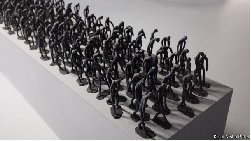
In London, the first museum in Britain dedicated to migration intends to be a place where to see this hot political issue in its historical depth, since immigration has forged the national character from very long times. The fears that surround foreigners recur in the history.
Read more:
http://www.economist.com/blogs/prospero/2017/05/e-pluribus-britannia
Fans de.. à vos claviers d’ordinateur
by Catherine Rollot
Source: Le Monde, 21 May

On Internet are circulating more than 750.000 stories that appropriate, continue, and give new life to characters of popular best-sellers and classics of not only literary fiction. These no professional authors, that interact with the community online, deconsecrate the literary creation and the relation writer-reader.
Adaptations au cinéma: “Moteur”
by Audrey Levy
Source: Le Monde, 25 May

At Cannes ‘Festival have been presented twelve films based on literary texts. It is a peculiar market which increases the national value of a work, ensuring at the same time its international acknowledgment and translation in many languages. But a beautiful story not always brings commercial success.
La Palme de la controverse pour Netflix
by Alexandre Piquard
Source: Le Monde, 21 May
In the controversy provoked by Netflix determination to offer soon online its two films produced and presented at Cannes’ Festival emerge the accomplished technological change of vision ‘s device and the question about what will this mean for the cinema meant as an art and not only as a consumeristic product.
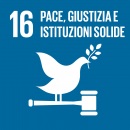
Time of Remembrance and Reconciliation for those who lost their lives during the Second World War, 8-9 May
Source: http://www.un.org
These international days have been the occasion for UN Member States to think about the importance to ensure international peace and security, always threatened by new challenges, with peaceful means and efforts, remembering that the United Nations was born of the Second World War.
Read more:
http://www.un.org/en/events/remembranceday/resources.shtml

SDG Watch Europe recommendations for Council conclusions on the EC Communication: next steps for sustainable European future
Source: http://www.asvis.it, 5 May
After a year and a half from the 2030 Agenda adoption by the UN member States, it’s time for European institutions to outline a set of concrete actions, providing for the political failures in the fields of poverty, inequalities, environment and the loss of faith in the European Union.
Read more:
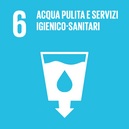
Thirsting for justice
Source: http://www.righttowater.info, 22 March
A new report about Europe’s Roma highlights how the denial of the human right to water and sanitation reveals depth discrimination for the most disadvantaged and marginalized. Living without a near water source and toilets is to be considered as an inhumane and degrading treatment.
Read more:
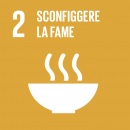
Food waste is the world’s dumbest environmental problem
by Andy Murdock
Source: https://www.vox.com, 9 May
Famine in the world, as well the climate change, can’t be faced without tackling food waste. Food waste produces 7 percent of greenhouse gas emissions. According to a UN Fao analysis, the global waste, put together, could form the second-largest country on the Planet.
Read more:
https://www.vox.com/videos/2017/5/9/15594598/food-waste-dumbest-environmental
EU- Kommission sagt Eurozone bessere Entwicklung voraus
Source: Frankfurter Allgemeine, 11 May
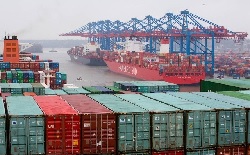
After the European Commission in the Eurozone is expected an economic growth for 2017 and 2018, with the GDP rising to 1,8%. They predict an improvement in exports and investments, in spite of the risks linked with the U.S. economic policy and Brexit.
Read more:
Les saints de glace: qui sont-ils vraiment?
by Marie-Aude Bonniel
Source: Le Figaro, 10 May
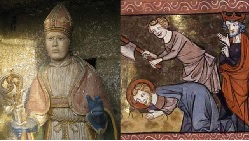
The catholic Church remembers on 12th, 13th and 14th May the Saints of ice, so called by the popular tradition to explain the sudden and late colds in this time of year. Among them, Saint Pancras was the first Christian to undergo the decollation.
Read more:
Tout sur “Guernica”
by Michel Lefebvre
Source: Le Monde, 5 May
In Madrid, an exposition dedicated to Guernica represents an important historical document on this Picasso's work and the historic avant-garde art, when the fascism and barbarism required a return to realism, which turns out in this universal work not pedagogical and dreadful in its truth.
Thinking fast, and faster
by Andy Beckett
Source: The Guardian, 11 Maggio
Our world going toward the merging of the digital and the human looks like a product of science fiction, that during the Sixties imagined a society “to a higher level” and transformed by technology.The speed of the change has become the dimension of contemporary thought.
Les Afriques à l’honneur
by Philippe Dagen
Source: Le Monde, 29 April
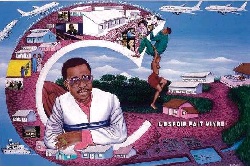
At the Fondation Louis Vuitton , two expositions confirm the recognition in the international cultural world and by public institutions of contemporary African art, for long considered as a “coloured” undercategory.
Jean Renoir, le patron du cinéma français
by Daniel Psenny
Source: Le Monde, 29 April

The channel Arte proposes a series of restored movies by Jean Renoir, and rare pieces from television archives that build a fresh portrait of this great director, son of a great painter, who considered the cinema as a game and its function, “to open windows”.
Why humans must not give up the quest for Mars
by Nicky Jenner
Source: The Guardian, 1 May
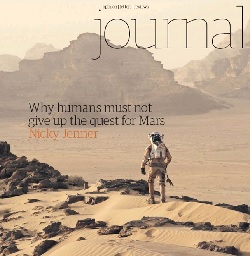
Although missions to Mars are very expensive and may be more interesting planets to explore, the red planet has so much inspired our culture and imagination for centuries and is so proximate and similar to the Earth that it is worthy to continue there our seek for life and learn more.
Régis Debray: “ Le clivage gauchedroite fait partie du mobilier national”
by Nicolas Truong
Source: Le Monde, 4 May
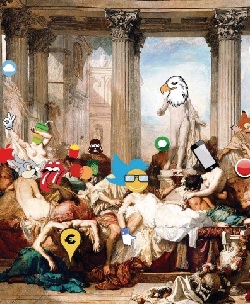
The electoral language makes use of a rhetoric that has outdone the old political distinctions, demonstrating the depriving of meaning of the European civilization, not because of immigrants invasion, but of the planetary americanization that is triggering a not sterile decadence.
Aki Kaurismaki probes Finland’s asylum system
Source: The Economist, 20 February
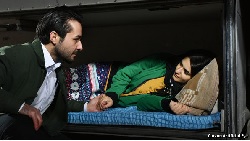
In this second installment of his trilogy about refugees premiered at this year’s Berlinale, Kaurismaki tells two stories of people who have left home to start a new life, juxtaposing the blind unavoidability of the legal mechanisms with the human intelligence of empaty and pity.
Read more:
http://www.economist.com/blogs/prospero/2017/02/other-side-hope
How to have a better death
Source: The Economist, 29 April
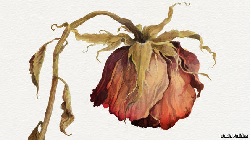
A medical-assisted dying means a better care of life for some patients, but it’s as much needed a change in the way health-care systems deal with seriously ill patients, and communicate with them, ensuring the access to palliative medicine and the social support.
Read more:
http://www.economist.com/news/leaders/21721371-death-inevitable-bad-death-not-how-have-better-death
Go to the content
April 2017 Culture and Society
Read the articles selected in April 2017
Charting trends in apocalyptic and post-apocalyptic fiction
Source: The Economist, 12 April

Apocalyptic narrations express the popular fears for real technological and geopolitical changes. From the end of the second world war the apocalypse literature has told differently mankind’s end: first were carnivorous plants or aliens, then nuclear war, today are climate change, robots or bioweapons.
Consulta l’articolo:
http://www.economist.com/blogs/prospero/2017/04/writing-end-world
L’antiquité grecque 2.0
by Vincent Azoulay
Source: Le Monde, 14 April

The Greek antiquity, flourished on the competition, in absence of a central power, of the City-states, seems to inspire Silicon Valley model of the knowledge economy, but at the same time, it shows how technological innovations can change sign when the political climate changes.
Zimbabwe’s mental health solution – “grandmothers”
by Ranga Mberi Harare
Source: The Guardian, 14 April

Mental health in Zimbabwe is cared by a programme that may be a blueprint for developing States. In a country where one in four suffers from mental illnesses, a no conventional approach based on talks with trained “grandmothers” helps many people to speak about.
Marathon struggle of runner who changed athletics
by Alexandra Topping
Source: The Guardian, 19 April

Kathrin Switzer, the first women to run officially the Boston marathon in 1967, has run it again, only 25 minutes slower. She has become an icon of feminist history as a serious official tried to force her off the until then all-male race.
“Les écrivains du XVIIe siècle parlaient du livre exactement comme on parle de l’intelligence artificielle aujourd’hui”
by Florence Noiville
Source: Le Monde, 7 April
Louisa Hall’s “Speak” is a novel that imagines a near future where through the machines we will have a better understanding of ourselves discovering how weak are the differences between the different forms of intelligence as well other unknown factors that shift further and further the borders of the human quid.
The security threat to the global economy
Source: The Economist, 6 April

Geopolitical tensions threat global economy, but at the same time, economic disputes and interests don’t help to solve global conflicts. The world seems unable to deal with geopolitical crises, and the security problems we face today remember the League of Nations era.
Read more:
http://www.economist.com/blogs/buttonwood/2017/04/half-league
Digital music tools are reshaping music education
Source: The Economist, 30 March

Augmented-reality can improve the experience of learning music through programmes inspired by music and rhythm games and karaoke videos, and computer-connected keyboards, whereas Youtube, digital sheet music and smartphone apps have replaced the books of scales.
Read more:
http://www.economist.com/blogs/prospero/2017/03/casual-learner-era
Was heisst schon rechts, wo liegt links?
by Joachim Müller-Jung
Source: Die Frankfurter Allgemeine Zeitung, 12 April

After a study published in the review “Nature Human Behaviour”, brains chemistry and morphology do influence not only emotions and decisions but also inclinations and political tendencies. That’s how to certain disciplines are mainly devoted conservative minds and to other ones more minds set on left.
Read more:
Junge Europäer brauchen keine Religion
Source: http://www.faz.net, 6 April

After the German study “Generation what?” based on the answers of 200.000 young people aged between 18 and 34, they can be happy even without believing in a God. A considerable percentage doesn’t trust religious institutions.
Read more:
L’historien Vincent Debiais décrypte le rôle des textes dans les images du Moyen Age
by Étienne Anheim
Source: Le Monde, 31 March

In the medieval images, in continuity with the Jewish- Christian tradition, writing doesn’t completely adhere to the figures, but it is in the difference and discrepancy with it that matter takes form and life, before the moving eyes of the spectator.
“Queer British Art” explores the diversity of desire
Source: The Economist, 5 April

A new exhibition at Tate Britain shows chronologically along the period between 1861 and 1967 how painters expressed in their works hidden and forbidden “non-conforming sexualities and gender identities”, taking off the veil of “ purified art object” to the traditional female nude.
Read more:
http://www.economist.com/blogs/prospero/2017/04/adding-colour
Looking good can be extremely bad for the planet
Source: The Economist, 5 April

The clothing industry has a big environmental impact both for the use of chemicals on tissues and for greenhouses gas consumption. Although some firms have tried a more ecological production, they need to develop new materials and to package more durable products.
Read more:
Europe’s future is multi-speed and multi-tier
Source: The Economist, 23 March

Europe’s future is multi-speed and the current political crisis urges to rethink the structure of its project. A multi-tier model would be more inclusive for those countries that can’t keep pace with a rigid Europe, while it would allow a deeper integration of the euro-zone center.
Read more:
Tailler l’Europe comme un rosier
by Arnaud Leparmentier
Source: Le Monde, 30 March 2017

After Brexit, the EU must start again on the one side leaving out those partners that don’t respect the policy of rules and the democratic values, and on the other side refastening the ties with the own citizens to reduce the democracy lag and open the way to a Confederation of States.
The two-year countdown to Brexit has begun
Source: The Economist, 29 March

On March 29th the UK has begun the negotiating process for leaving the EU in the perspective of a “deep and special partnership” with the EU. Reaffirming to breach the EU’s principle of free movement of people, Theresa May has expressed the willingness of a bespoke free-trade deal.
Read more:
Can Europe be saved?
Source: The Economist, 25 March

Prolonged economic pain, great powers unenthusiastic about EU make Europe weak and divided. If a closer Europe is not possible, a multi-tier Europe would attract widely differing countries, but that means changing mindset more than treaties.
Read more:
Go to the content
January Culture and Society
Read the articles selected in January 2017
L’humour francais opère sa mue
Source: Le Monde, 24 January
The 20° Festival International du film de comédie shows the persisting tradition of the French comédie, with its legacy from the vaudeville and quiproquo, contaminated by the television building of its writing, structured after the American formats.
One country, two systems.
Source: The Economist, 21 January

Zhou Youguang was the creator of pinyin, the writing system that uses roman characters to write Mandarin. Wanted by Mao to make easier the access to literacy, it failed to root in the Chinese culture.
Read more:
“Mes films rachètent mes péchés”, confession de Martin Scorsese
by François Forestier
Source: Le Nouvel Observateur, 12 January
In "Silence" Martin Scorsese tells the spiritual path of a Jesuit priest who, lifting the intrinsic identity with the represented of images, saves the believers’ life and finds his deepest faith in a God, that atrocities and the most reasonable pragmatism can’t delete.
Impressionism from the land down under
Source: The Economist, 28 December 2016

An exhibition at the London National Gallery presents the European spectators the Australian Impressionism, characterized by a stronger sense of naturalism and a different quality of light, a sun that only lightens the world of the white settlers.
Read more:
http://www.economist.com/blogs/prospero/2016/12/sunburnt-country
L’Europe doit inventer une nouvelle mondialisation
by Paul Magnette
Source: Le Monde, 13 January
The commercial UE politics should serve its ambitions and its action about sustainable development, inequalities, and climate change if it intends overtaking the legitimacy crisis it is going through.
Zygmunt Bauman
Source: Le Monde, 14 January
The sociologist and philosopher who has coined the expression “liquid society” is dead, after describing our contemporary world that put aside the collective, solid and rational projects of the modern and post-Enlightenment societies, dissolving in a disposable, interchangeable form human beings, feelings, and norms.
Der Mensch als Emoji;)
by Sibylle Anderl
Source: Die Frankfurter Allgemeine Zeitung, 17 January

.
Stephanie A. Malone and Helen J. Wall describe in an article on “Trends in Cognitive Sciences” the human behaviour of our time, struggling with emojis and emoticons that have apparently erased the communicative ambiguity and made the human face a faded version.
Read more:
http://www.faz.net/aktuell/wissen/die-macht-der-emojis-14672409.html
Robert Doisneau, shy street photographer
Source: The Economist, 17 January

A collection of black and white photographs by Robert Doisneau from the 1940s and 1950s are now exposed at Berlin’s Martin-Gropius –Bau museum. The shots document the European life in post-war and sketch out the streets of Paris, the hungry city despoiled of its bourgeois standard of living, to find there the unexpected.
Read more:
http://www.economist.com/blogs/prospero/2017/01/humanist-behind-lens
La finance de l’ombre pêut-elle provoquer un nouveau krach?
by Isabelle Chaperon
Source: Le Monde, 10 January
Out of the banks, subject to strict control by governments and financial authorities, there is almost in the USA a parallel shadow banking operated by insurance companies and investment funds that give credit without the precautionary assessment of risk that banks do, threatening the financial stability.
Warum wir mit Hunden in Babysprache sprechen
by Viola Ulrich
Source: Die Welt, 11 January

A research team of the City University in New York has led a study that explains why humans speak to dogs with the same tones and language used towards children observing the reactions of these pets of different ages to our effusions.
Read more:
https://www.welt.de/kmpkt/article161065650/Warum-wir-mit-Hunden-in-Babysprache-sprechen.html
Las mejores piernas del Antiguo Egipto
by Jacinto Antón
Source: El País, 10 January

The mummified remains of an Egyptian grave, exposed in the Turin Museum and attributed since they have been discovered in 1905 to the Queen Nefertari have been subjected to a rigorous scientific study confirming the possibility that it’s about her legs.
Read more:
http://cultura.elpais.com/cultura/2017/01/10/actualidad/1484050265_238895.html
Berlin’s unique new music academy
Source: The Economist, 9 January

The West- Eastern Divan Orchestra, founded in 1999 as an experiment to promote the peace, hosting in the historic city of Weimar Israelian and Palestinian musicians, has become a permanent academy that passes on students from enemy areas the tolerance inspired by humanistic teaching.
Read more:
http://www.economist.com/blogs/prospero/2017/01/some-rare-good-news
Go to the content
December 2017 Culture and Society
Read the articles selected in December 2017
November 2017 Culture and Society
Read the articles selected in November 2017
October 2017 Culture and Society
Read the articles selected in October 2017
September 2017 Culture and Society
Read the articles selected in September 2017
August 2017 Culture and Society
Read the articles selected in August 2017
July 2017 Culture and Society
Read the articles selected in July 2017
June 2017 Culture and Society
Read the articles selected in June 2017
March Culture and Society
Read the articles selected in March 2017
February Culture and Society
Read the articles selected in February 2017

